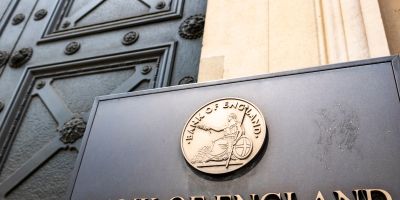Alumni Spotlight: Devyani Vaishampayan

Meet Devyani Vaishampayan (Managers for Leadership, 1997). She has had a distinguished career in global HR leadership, AI entrepreneurship and Non-Executive Director roles.
Devyani is Remco Chair and Non-Executive Director (NED) at Norman Broadbent Plc and Independent NED on the Audit Board of Mazars. She is a Fellow at Chapter Zero and a Board Mentor with Critical eye. Over the last six years, Devyani has been a successful Artificial Intelligence (AI) entrepreneur. Recently, she has successfully exited out of her AI Innovation Hub that advises corporates on the digital adoption of AI solutions in the areas of leadership, culture, and the future of work.
Prior to this, over a 30 year period, Devyani was an international and multi-sector FTSE 30 Group Chief HR Officer (CHRO) leading large, diverse, and multi-billion complex organisations through transformational change. She has held global roles across various industries such as British Gas, Rolls Royce, Citibank, AT&T and BSI.
Having lived and worked in China, Singapore and Europe, as well as managing teams in the Americas, Asia and Middle East, she is very international in her outlook. Devyani is considered a thought-leader in the spheres of Sustainability, Board Governance, Inclusive Leadership, Digitisation of the Workforce and is a well-known speaker at business events.
She has received several international accolades:
2021 – Top 100 Digital Influencer around the Future of Work
2020 – Finalist, Asian Woman of Achievement, Technology & Digital
2017 – Financial Times Ethnic Minority Leaders List
What is your current role? Can you tell us a bit about what it means to be a Non-Executive Director (NED)?
Currently, I am a portfolio NED. This means I am on several boards as an Independent Director and Remco Chair. These include Mazars (a global french audit and tax advisory firm in 95+ countries), Saietta Group Plc (an international business manufacturing e-drives for e-vehicles) and Norman Broadbent Plc (a UK listed international search and leadership advisory business).
Why did you decide to take this route?
I have been fortunate to have had a very successful career in senior roles culminating as a member of the Group Executive team in large international FTSE 100/250 businesses. There, I have particularly enjoyed the challenges of being strategic, solving complexity and driving commercial success. A Non-Executive Director plays an active role in steering businesses in the right direction, ensuring governance and most importantly ensuring stakeholder interests are managed. This was therefore a logical route to take. I also enjoy the intellectual stimulus of a NED career. All three boards I am part of are in completely different sectors and I must constantly think of the issues, opportunities and the changing landscape for them.
What advice do you have for anyone who is considering becoming a NED?
A NED role is different to an executive role as it involves ‘influencing’ rather than ‘doing’. You need to consider if you are ready for this change. The UK governance code has laid out several responsibilities and liabilities for Directors- hence it is also a significant responsibility.
You have had such a successful career - what are your most memorable highlights and challenges?
I have always craved to better myself and take on new challenges, so there are several that are memorable. A few that were a turning point for me were:
• Getting the Chevening Scholarship which paved the way for my move into the UK.
• Being recognised by the Financial Times as an outstanding business leader.
• Becoming an AI entrepreneur when I was in the midst of a successful corporate career and making a successful exit from one into the other.
How has your experience at the Business School helped you in your work?
My three-month stay at the Business School with its emphasis on projects was a great way for me to authentically experience working life in the UK and make the decision to move here. Whilst I already had an MBA degree, the programme at the Business School was very useful in ‘re-learning’ many things in a practical and pragmatic manner. Our professors were experts in their fields, and we were lucky to have their inputs and guidance.
What are your best memories of your time at Leeds?
The Business School did a fantastic job of familiarising us with not just academics but also the cultural side of living in the UK. I have happy memories of weekends spent going to a Leeds United football match or being taken to the surrounding countryside. We also got to know our professors with social as well as professional hospitality opportunities.
The job market has changed so much in the last few years - what tips would you give students so they can make the most of their time at Leeds and beyond, to help them get ahead in their careers?
Leeds does an exceptional job at focusing on not just ‘academic’ skills but developing ‘life skills’ that can be priceless in your career. So, take the time to step beyond your course requirements, engage with a wide range of people and societies. It will help you to discover new aspects of yourself.
What are your ambitions for the future?
I am excited at the prospect of taking on further commercial NED roles that are complex and continuing my learning journey. I also spend time mentoring young professionals and hope I can be a good sounding board to them. Personally, I would like to continue enjoying the time I have with my daughters and husband who push me to broaden my perspectives, and delve deeper into my spiritual quest.
Did you have any alternative careers in mind when you were younger?
As a good student, my parents wanted me to become a doctor. I was never keen on it but dutifully gave all the necessary entrance exams … and was relieved when I missed my admission by one mark! And ultimately landed in a career in business which was always my dream.
Taking time for yourself away from work is important, although it can be hard to fit in. How do you relax and wind down? Do you have any advice?
In today’s 24/7 digital environment it is becoming even more important to have strict boundaries to manage our time around it. I am careful not to access social media in the morning before I finish my exercise and, in the evening, at least an hour before I go to bed. I love reading and am thankful that the UK has such excellent libraries to sample a wide variety of authors. Recently, I have also started learning bridge which is a great way to destress.
Who inspires you and why?
Last week, I watched a very poignant film called The Deepest Breath about Alessia Zecchini (born 1992) who is an Italian free diver and has set world records in freediving. Alessia knew from an early age she wanted to be a free diver and succeeded in a very male/traditional environment. Given my phobia of being underwater it was an achievement. However, what is inspirational is what followed next. Alessia romantically partnered with Stephen Keenan, a safety diver who died on one of her dives in order to protect her. Despite being emotionally shattered, Alessia went back to free diving and has continued her success. The resilience and mental strength she demonstrated is remarkable.
Find out more about the Exceptional NED Training Programme at the Business School.




